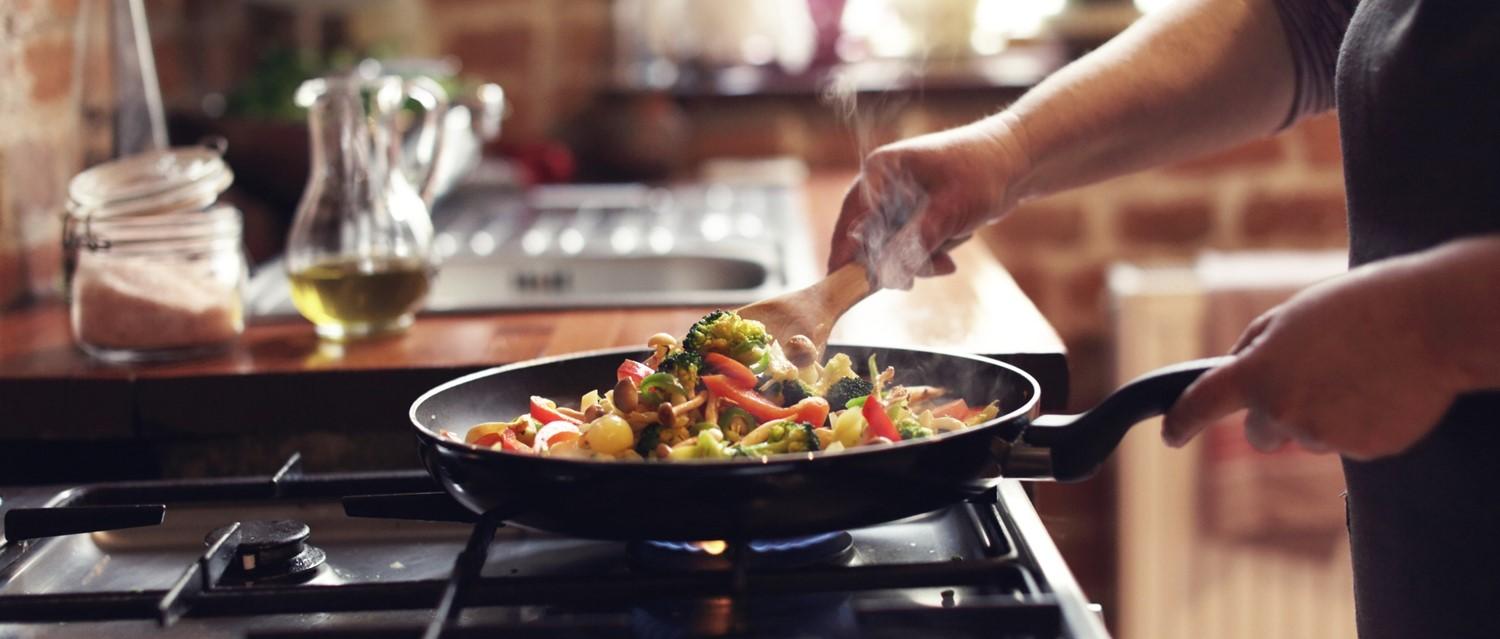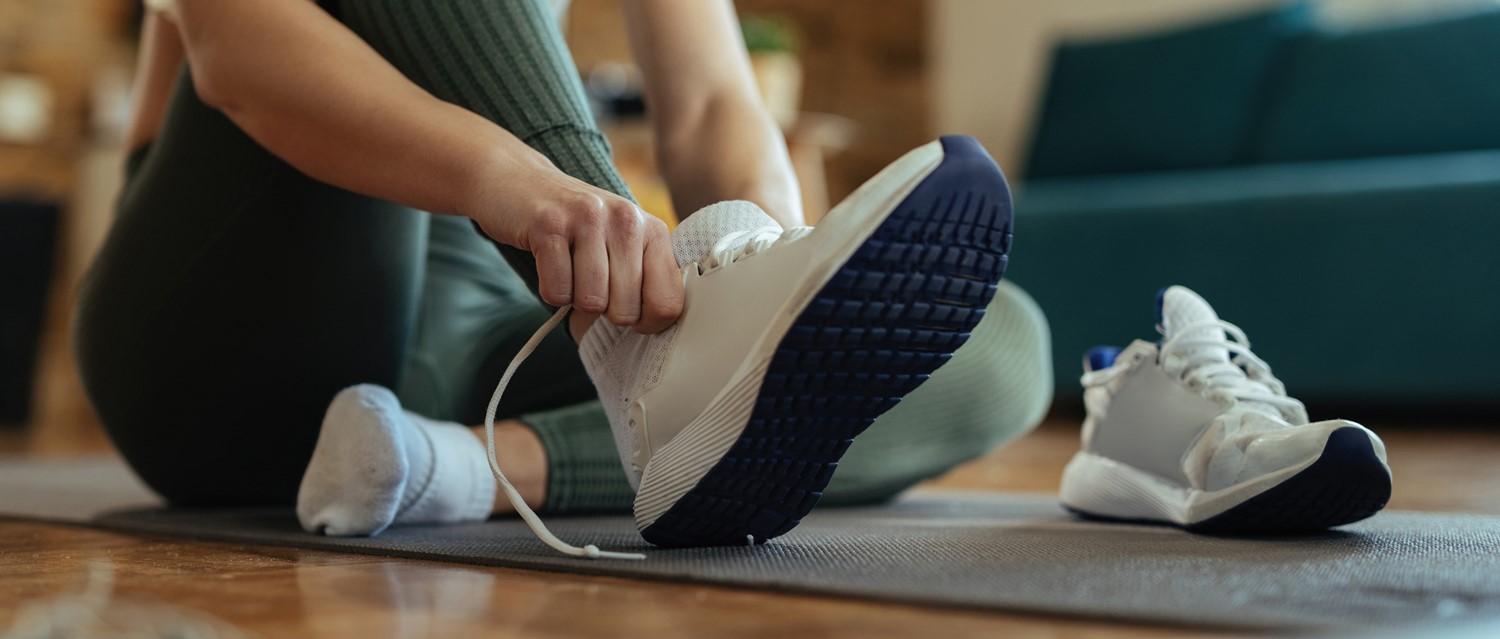
How to maintain a healthy lifestyle during lockdown
Peer reviewed by Dr Sarah Jarvis MBE, FRCGPLast updated by Karine Patel, RDLast updated 22 Feb 2021
Meets Patient’s editorial guidelines
- DownloadDownload
- Share
- Language
- Discussion
COVID-19 has made some remarkable changes to our lifestyles. To cope with these sudden changes, many of us turned to our cupboards and ate and drank more while sitting at home. One year later, these habits have resulted in many of us feeling less fit than we were before the pandemic.
In this article:
So what can we do to curb these new habits, eat more healthily and get back to feeling our best?
Continue reading below
How has lockdown affected our lifestyles?
Research has shown that a change in daily routine can increase stress and anxiety and this may result in dysfunctional coping behaviour, leading to more comfort eating and emotional eating. It's therefore unsurprising that our lifestyles have changed during the COVID-19 pandemic and especially during periods spent at home in lockdown.
A survey conducted by Ipsos MORI and King's College London found that during the first national lockdown, 35% of people reported eating more food or more unhealthy food than they normally did. Close to 50% said that they put on weight during lockdown. The same percentage reported feeling more stressed or depressed than usual. Almost a third of people said they drank more alcohol.
Curbing lockdown eating
Back to contentsWhilst comfort food and alcohol may seem like a quick and easy fix for difficult emotions or boredom, they won't actually solve the problem and may make the situation worse.
Madeleine Hawkes, weight management dietician at Nutrition Synergy, recommends taking some time to consider whether or why you're actually hungry in order to eat more intuitively.
"Next time you find yourself heading to the fridge, ask yourself, 'Am I truly hungry?' If not, ask yourself, 'What am I actually hungry for?'"
If you're bored then what you're seeking is stimulation, not food. You could try playing some games like sudoku, or read a book to keep yourself occupied.
If you're feeling low and you're actually hungry for comfort, why not reach out to a friend or run a warm bubble bath?
If you're feeling stressed, get outside for a walk in the fresh air, or try a home workout online in your living room to get the blood pumping. Evidence shows that exercise can really bring stress levels down.
If you're feeling anxious, you could try some meditation apps or yoga to keep you grounded in the present.
Continue reading below
Finding balance during a pandemic
Back to contentsWith many of us either working from home, furloughed or possibly out of work, our days have lost their usual structure. This can lead not only to our sleep getting disrupted but also to our meal patterns becoming disrupted. Try to maintain your usual routine of meals to increase a sense of normalcy and reduce grazing.
At mealtimes, try to build a balanced diet using these strategies:
Aim for half the plate to be made up of vegetables. Vegetables are low in calories, a great source of fibre and rich in vitamins and minerals.
A quarter of your plate should be protein, either animal or plant-based. This is the part of the meal that fills you up and keeps you feeling full for longer which helps reduce snacking in between meals.
The remainder of your plate can be made up of complex carbohydrates like wholewheat pasta, brown rice or sweet potatoes. Avoid 'refined' (processed/white) carbohydrates, both sugary and starchy.
For those who find themselves snacking between meals, try to pick some more nutritious alternatives. "It's best to have healthy snacks in the house which are easy to reach for," says Madeleine. "Fruits make an excellent choice for a sweet tooth. Vegetable sticks with hummus, Ryvita crackers with reduced-fat cheese or unsalted roasted nuts are great savoury choices. BBC Good Food has some fantastic snack ideas if you're lacking inspiration."
Stay hydrated
The body's cues for thirst due to dehydration can often be confused with hunger. To keep hunger at bay, make sure you're drinking enough. Any drinks, except alcohol, contribute towards your fluid intake, and you'll need more if you're partaking in regular exercise.
"Reduce your intake of sugary drinks and alcohol as these are 'empty calories'," explains Madeleine. "Avoid drinking too many coffees (ideally fewer than four per day) and energy drinks - they can make anxiety worse if drunk in large quantities because of the caffeine they contain. Great choices include sugar-free squash, herbal teas and water with fresh herbs like mint or fruit and vegetables such as cucumber, ginger or grapefruit."
Be kind to yourself
Finally, and most importantly: be kind to yourself. We are living through a global pandemic for which none of us has been prepared. Whatever you are doing to cope during these uncertain times, you are doing the best you can. Self-criticism and blame serve no function other than to make a difficult situation harder. Try to extend the same gentle acceptance and empathy that you would for a friend in the same situation to yourself.
Patient picks for Pandemic articles

COVID-19
Tips for restarting your exercise routine after lockdown
Lockdown has affected us all in different ways. When it comes to fitness, some of us have stepped things up - going running for the first time, or taking long walks. Others will have experienced illness, had to care for others or simply found it all too much. As lockdown eases, what's the best way to restore our fitness, or even get fit for the first time?
by Gillian Harvey

COVID-19
What are the latest rules on face masks in the UK?
As rules ease slightly in some parts of the UK, new measures are introduced to keep us safe as our exposure to the outside world increases. One of these measures is wearing a face mask or covering which, in England, has become mandatory in some situations.
by Milly Evans
Continue reading below
Article history
The information on this page is peer reviewed by qualified clinicians.
22 Feb 2021 | Latest version
22 Feb 2021 | Originally published

Ask, share, connect.
Browse discussions, ask questions, and share experiences across hundreds of health topics.

Feeling unwell?
Assess your symptoms online for free
Sign up to the Patient newsletter
Your weekly dose of clear, trustworthy health advice - written to help you feel informed, confident and in control.
By subscribing you accept our Privacy Policy. You can unsubscribe at any time. We never sell your data.